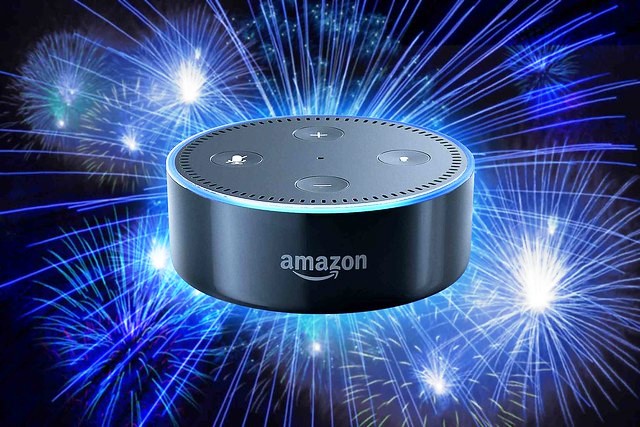
Image source: Methodshops.com via Flickr
More than a few pundits have predicted smart speakers will revolutionize marketing. But have marketers heard that message? Smart speakers have certainly spread rapidly. Smart speaker sales reached 147 million worldwide last year, a 70% increase over the previous year, according to Strategy Analytics. Amazon Echo and Google Home dominate the smart speaker market.
Smart speakers have yet to develop as a marketing channel, asserts Greg Sterling, contributing editor to Search Engine Land. There’s a dearth of data and case studies on successful marketing through smart speakers. Surveys indicate that consumers use smart speakers for search and commerce, but it’s not clear how well the surveys correspond to behavior.
“Is it caution? Is it a lack of vision and creativity? It’s mysterious why we’re not seeing any good data or case studies or PR around any of this — other than device sales,” Sterling says. “Marketers and brands are likely aware that they need to create voice/smart speaker experiences that aren’t purely about novelty and actually do something useful. Perhaps that’s holding many of them back.”
A recent eMarketer survey revealed that consumers aren’t confident with making purchases through smart speakers, most likely because of lack of trust in security.
Others argue that brands are marketing through smart speakers, even if the devices haven’t attained their full potential.
Brands Embrace Skills and Actions
Most marketing efforts have focused on creating Google Actions and Alexa Skills, apps that inform, entertain and sell products. “Today, more and more users are turning to their smart speakers for help, for news, for entertainment, and for pretty much anything you can think of,” writes Matthew J Fritschle for Aumcore.
Domino’s Pizza’s AnyWare skill and action allows people to order pizza with their voice. Tide’s Stain Remover skill offers step-by-step instructions for removing every type of stain, Fritschle notes. Zyrtec’s Your Daily AllergyCast skill provides information like a pollen count forecast for your local area.
Campbell’s skill offers recipes and suggestions based on your taste profile, the weather, and trending topics. The Purina app provides information about different dog breeds, such as their behaviors, shedding, and feeding guidelines.
Starbucks has an app that lets people order and pay in advance. Follow Starbucks’s example and make sure there’s a market need before developing a skill, advises digital marketer Kayla Matthews at MarTechWiz. Starbucks realized its customers often drink coffee while driving, so its marketing plan made sense. It developed the skill only after its ordering-app proved popular.
Other Smart Speaker Marketing Options
News flashes. Google Home’s “My Day” and Amazon Echo’s “Flash Briefing” narrate news and other daily information that users request. That could be an update from a blog feed, a daily joke, an interview, or a news item. Getting on those personalized news flashes requires creating new, content daily.
“In order to make this happen, you’re going to need to offer some new content every day. It doesn’t need to be long — in fact, it should bite-sized,” writes technology and marketing expert Ben Beck for ClearVoice.
Advertising. Google and Amazon don’t run ads on their smart speakers. But brands have plenty of options to advertise on podcasts or streaming music to reach smart speaker users. While My Day and Flash Briefing don’t accept advertising, brands can purchase ads on podcasts and other audio content that appear on them.
Podcasts. While companies have long advertised on podcasts, more are finding that producing their own podcasts, or branded podcasts, offers an effective PR and marketing strategy. The most successful branded podcasts deliver entertaining, valuable content to the company’s target audience rather than obvious sales pitches. Examples include the Slack Varity Pack, Thank God it’s Monday from Shopify, and Open Account from Umpqua Bank.
Before pursuing marketing strategies through smart speakers, determine if your customers use the devices, Beck advises. Research your target audience demographics with surveys or other methods.
As the number of smart speakers grows – and it will – early adopters who develop creative marketing and PR programs for smart speakers and voice search will gain customer loyalty and a competitive advantage.
Bottom Line: Even if smart speakers haven’t yet revolutionized sales and marketing, many savvy marketers are promoting their brands through the voice-activated devices and gaining a foothold in what is likely to become a major marketing channel.
William J. Comcowich founded and served as CEO of CyberAlert LLC, the predecessor of Glean.info. He is currently serving as Interim CEO and member of the Board of Directors. Glean.info provides customized media monitoring, media measurement and analytics solutions across all types of traditional and social media.




